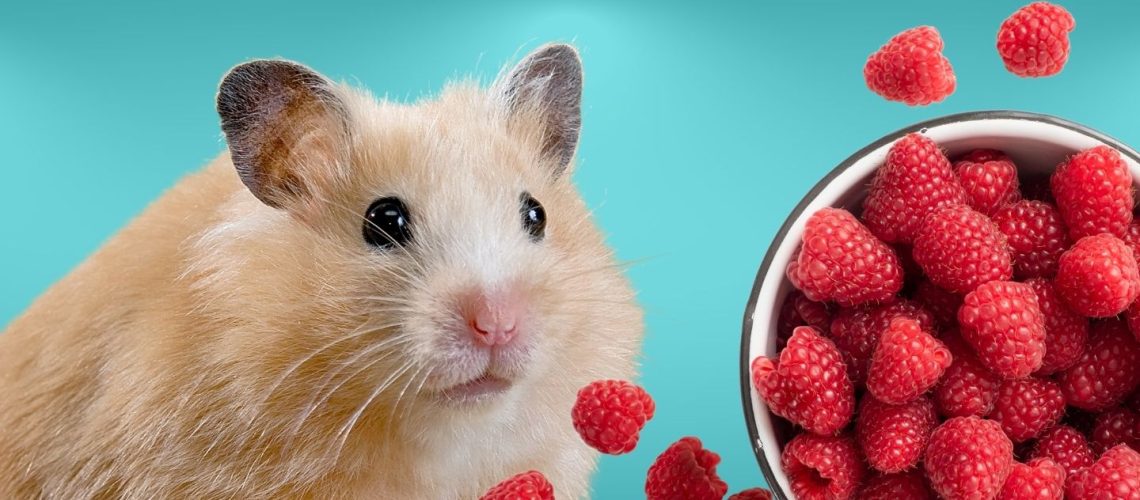Yes, hamsters can eat raspberries. Raspberries are a healthy, tasty treat for hamsters to enjoy. However, it is important to feed them in moderation and to ensure that they are properly prepared before feeding them to your hamster.
Introduction to Hamster Diet
Hamsters are small, adorable pets that require a well-balanced diet to thrive. Understanding their dietary needs and offering them a variety of healthy foods is crucial for their overall health and well-being.
Hamster Dietary Needs
Hamsters primarily need a diet rich in protein, fiber, vitamins, and minerals. They should have a mix of commercial hamster food, fresh fruits, vegetables, and occasional treats to ensure proper nutritional intake.
Common Hamster Foods
Some staple foods for hamsters include:
- Commercial hamster pellets
- Seeds, nuts, and grains
- Fresh fruits and vegetables
- Protein sources like mealworms and boiled eggs
Benefits of Raspberries for Hamsters
Introducing raspberries into your hamster's diet can provide several health benefits due to their nutritional content.
Vitamins and Minerals
Raspberries are rich in vitamin C and various minerals, like magnesium and potassium, that are important for hamster health.
Antioxidants
Raspberries contain antioxidants that help protect hamsters from cell damage and support their immune system.
Fiber Content
The high fiber content in raspberries helps support healthy digestion in hamsters and keeps their gastrointestinal tract functioning properly.
Hydration
Raspberries have a high water content, which can help keep your hamster hydrated and maintain their overall health.
Potential Risks of Feeding Raspberries to Hamsters
Despite their benefits, there are some potential risks associated with feeding raspberries to your hamster.
Sugar Content
Raspberries, like other fruits, contain natural sugars which can cause problems for hamsters if consumed in excessive quantities. Overconsumption of sugar can lead to obesity and diabetes in hamsters.
Pesticides and Chemicals
Raspberries may be exposed to pesticides and chemicals during cultivation, which can be harmful to hamsters in large amounts. Make sure to wash and clean them before feeding.
Allergies or Sensitivities
Some hamsters may have allergies or sensitivities to raspberries or other fruits, which could result in skin irritation, digestive issues or other problems.
Overfeeding
Feeding too many raspberries or other fruits to your hamster can lead to stomach upset, diarrhea, or other health concerns.
Preparing Raspberries for Your Hamster
Properly preparing raspberries will ensure that your hamster can safely enjoy them.
Washing and Cleaning
Wash the raspberries thoroughly to remove any traces of pesticides, dirt, or chemicals that could harm your hamster.
Cutting and Portioning
Slice the raspberries into small, manageable pieces so that your hamster can easily eat and enjoy them.
Storing and Preserving
Store any uneaten raspberries in the fridge for up to a week. Make sure to keep them covered to avoid cross-contamination with other foods.
Alternatives and Other Fruits for Hamsters
If your hamster enjoys raspberries, you can also introduce other healthy fruits, such as:
- Blueberries
- Strawberries
- Apples (without seeds)
- Grapes (seedless, and in moderation)
Tips for Introducing New Foods to Your Hamster
When introducing new foods to your hamster, follow these recommendations:
Gradual Introduction
Begin by offering only a small amount of the new food to gauge your hamster's interest and monitor for any negative reactions.
Monitoring for Reactions
Keep an eye on your hamster to see if they exhibit any signs of allergic reactions or digestive issues, like diarrhea or constipation.
Talking to Your Vet
If you're unsure about introducing a new food or have concerns about your hamster's diet, consult with a veterinarian for personalized advice.
Frequently Asked Questions
How often can I feed my hamster raspberries?
Offer your hamster a few small pieces of raspberry two to three times per week to avoid overfeeding them.
Can hamster eat raspberry leaves or stems?
Avoid feeding raspberry leaves or stems to your hamster, as they can be difficult for them to digest and may cause choking.
What other fruits should I avoid feeding my hamster?
Avoid feeding your hamster fruits that are high in acidity, such as citrus fruits, as well as fruits with pits or seeds that could be harmful, like cherries and apricots.
How do I know if my hamster is allergic to raspberries?
Symptoms of an allergic reaction in hamsters may include itching, redness or swelling of the skin, digestive issues, or trouble breathing. If you suspect your hamster is allergic to raspberries, contact your veterinarian.
Conclusion: Adding Raspberries to Your Hamster's Diet
Raspberries can be a great addition to your hamster's diet when fed in moderation and prepared correctly.
Moderation and Balance
Remember to only offer small amounts of raspberries and ensure your hamster continues to enjoy a well-rounded, balanced diet.
Responsibly Sourced Raspberries
Choose organic or responsibly sourced raspberries to minimize exposure to pesticides and chemicals.
Monitoring Your Hamster's Health and Well-being
Regularly monitor your hamster's health and consult with a veterinarian for any concerns you may have about their dietary habits. By offering your hamster a variety of healthy foods, including raspberries, you can help support their overall health and well-being.











